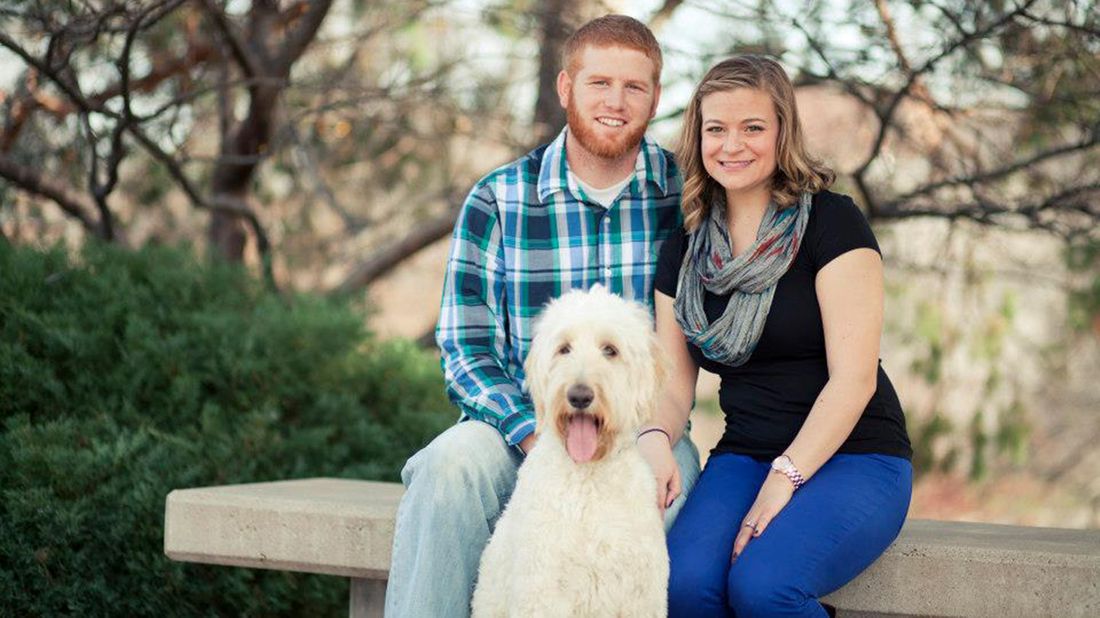How My Husband and I Finally Stopped Fighting About Money

I could feel myself start to cringe at the question I knew was coming: “So, how much did you spend today?” My husband asked while eyeing the new photo frames and wall decor I’d just unpacked.
I took a deep breath and told him I’d gone about $100 over budget. He looked at me and shook his head, clearly frustrated, but not exactly angry. I explained that I had been eyeing the photo frames for nearly a year, but waited until a month when I knew we had more cash flow to purchase them. From there, we had a calm discussion about our budget, where we both came away from the interaction feeling like we were on the same team — but it hasn’t always been that way.
Not too long ago, our conversations about money often devolved into insults and raised voices. Over time, and after many heated arguments, we’ve found ways to communicate about money without getting defensive. Here’s how we stopped arguing about money and started listening to each other.
-
WE GOT TO THE HEART OF THE ISSUE
Early in our marriage, I came home one day from the store with my arms full of fall decorations. I excitedly displayed them for my husband, particularly drawing his attention to a colorful wreath of red and orange leaves.
“What a waste of money,” he said in response.
This was the first of many tense conversations in which he regarded my purchases that were deeply meaningful to me as frivolous. It was years before I found the words to express why home decor mattered to me so much. Growing up, my mom decorated for each season, making our home warm and inviting. To me, hanging a wreath is an act of love. Once I was able to explain this to my husband, he backed off on the criticism, and we incorporated home decor into our budget.
On the flip side though, I had to listen to him and try to understand why my spending bothered him. I realized that he feels a lot of pressure as the primary breadwinner, and that the way he shows love to his family is to provide for us financially. This makes it difficult for him to see value in purchases that aren’t direct needs.
Once we were able to hear each other out and recognize that our different approaches to money come from two different but well-meaning places, it became much easier to talk about.
-
WE ESTABLISHED SHARED GOALS
My husband and I were married seven years ago in our early 20s, and despite having dated for eight years before that, we seemed to skip the big money conversation. We were young and broke when we got married, so the goals then were pretty simple: Pay the bills and buy groceries. But once we both had stable jobs and more cash flow, it became evident that we were not on the same page when it came to how best to manage our money.
So we came up with a budget together — first by discussing our big financial goals, like saving for a house, and then taking a look at our income and spending habits. I recognized my husband’s need to save as much as possible, and he acknowledged the importance of having some spending money every month for both of us. Now when one of us (usually me!) strays a bit from the agreed upon budget, we can kindly direct each other back to our shared goals, which feels a lot more like “we’re in this together” and less like the blame games we used to play.
-
WE STOPPED KEEPING SECRETS
A year ago, I likely would have lied about how much I spent on those frames and wall décor — or tried to hide my purchases completely, hoping my husband wouldn’t discover the truth. This was a method I relied on more than I’d like to admit, and it always blew up in my face when he inevitably found out. I did it to avoid an argument, but it only made things worse when the truth eventually came to light because not only had I overspent, but I had broken my husband’s trust.
I’m not proud of my dishonesty, but I know I’m not alone. According to a 2016 Harris Poll, 42 percent of people admit to hiding purchases from their partners. Now that we’ve established a budget that allows for some spending wiggle room, I have more freedom to make small purchases without feeling the need to hide them. If there is a bigger item I’m eyeing, I talk to my husband about it instead of buying it secretly. With more understanding from him, and honesty on my part, we plan together for bigger purchases and brainstorm ways to find cheaper alternatives.
When it comes to talking about money with your significant other, there’s likely to be some discomfort, but with practice and empathy, it certainly gets easier.
Feel better about taking action on your dreams.
Your advisor will get to know what’s important to you now and years from now. They can help you personalize a comprehensive plan that gives you the confidence that you’re taking the right steps.
Find your advisor




